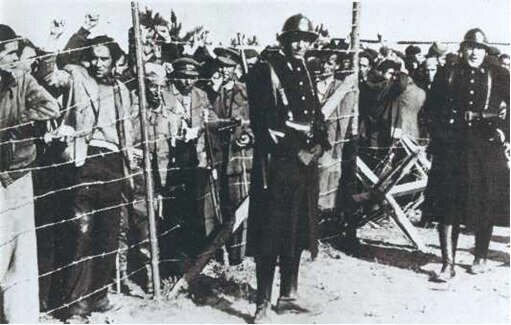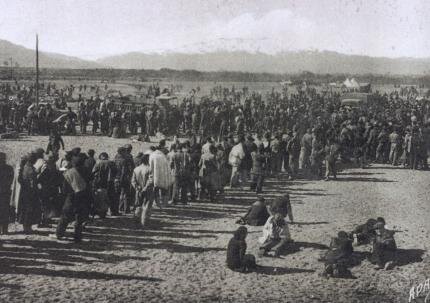Each country has a founding myth: a story (whether it is semi-fictitious or one recorded on a specific date) that is central to its identity and exists in its citizens’ collective consciousness. From the French Revolution to Garibaldi’s March on Rome, to even the tale of Romulus and Remus, these founding myths exist as an indelible mark on any historical timeline. Isabel Allende evokes these myths throughout her newest novel, A Long Petal of the Sea, which recounts the true story of the Dalmau family across the 20th century.
We follow the Dalmau family’s escape from Spain at the dawn of the Civil War to their journey to Chile aboard Pablo Neruda’s fabled Winnipeg. The story then chronicles their adventures in this strange, faraway new country: the eponymous ‘long petal of the sea’ first given this name by Neruda in “Cuando de Chile”. The beginning of the novel shines a light on an often-forgotten conflict, dwarfed by the magnitude of what was to come three years later. A particularly harrowing but enlightening episode is the period of time the protagonists spend in one of the multitudes of French internment camps at the edge of the Pyrenees, where Spanish exiles and immigrants fleeing Franco’s imminent regime found themselves. Unthinkable conditions result in unthinkable actions: after a woman’s five-month-old baby dies of malnutrition, the mother ‘went to the water’s edge and waded out into the sea until she disappeared. She was not the only one.’

Join the Waitlist
However, the all-too-vivid descriptions of the conditions are balanced by intimate, touching characterisation. From the very start, the reader will undoubtedly find themselves attached to these compassionate, flawed, yet endlessly strong characters who battle constant tragedy together.

This is an expected strength of the novel: the real Victor Dalmau shared his memories of real people with Allende. Both understood the melancholy of exile, and the mythical memory you may hold of your long-lost country. Dalmau left Spain after working as a doctor for fighters of the disgraced Republic, and Allende escaped Chile with her family when her uncle, Salvador Allende, was ousted in a vicious coup-d’état. This led to a thirty-year dictatorship described in the second half of the novel. We see how lost places become kingdoms of memories and relationships that we elevate to mythical statuses; unfortunately, we also see how these illusions are shattered upon an eventual return. The tragedy of this is explored in later sections in such meticulous detail that it could be suggested one suspects Allende is recounting her own experiences through the lens of Victor and his family.
Allende’s book is a sweeping tale of memory, family, and conflict, teaching its reader lessons in history and humanity.
Allende’s book is a sweeping tale of memory, family, and conflict, teaching its reader lessons in history and humanity. The author made her mark with the magical realist House of the Spirits; this novel moves away from a world of fantastical elements to more brutal realism, where the reality of conflict cannot be embellished. Yet its 13 chapters flesh out its characters and their environment in a nonetheless moving, gripping tale. Suffice it to say, A Long Petal of the Sea is a must-read.
Join the Conversation
Join the waitlist to share your thoughts and join the conversation.
.png)